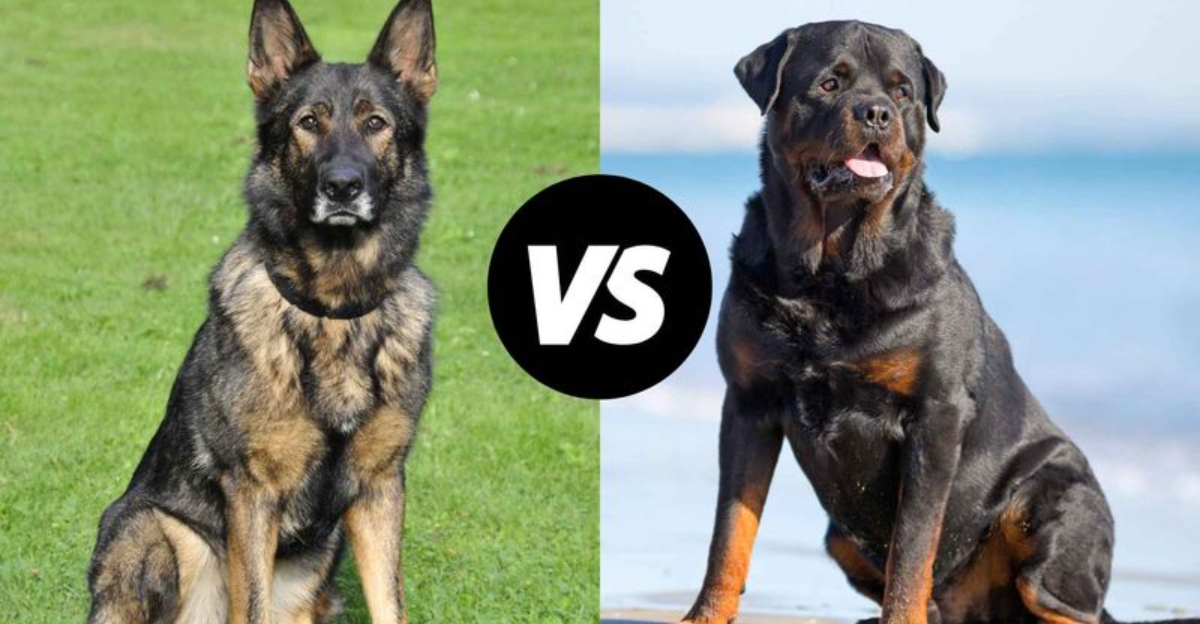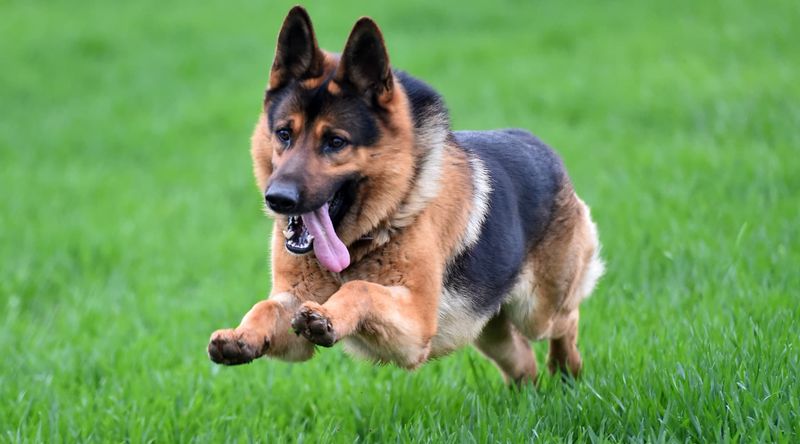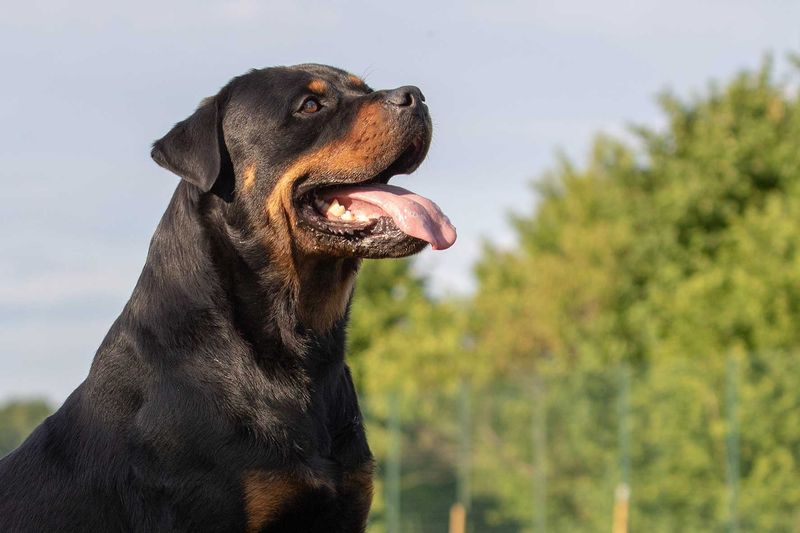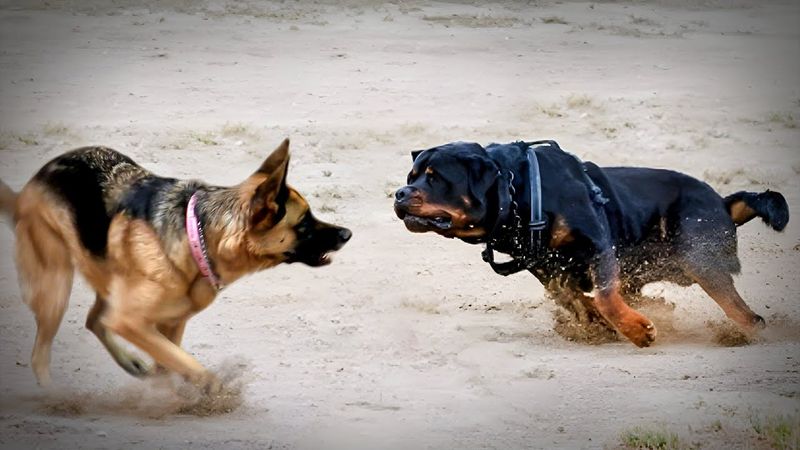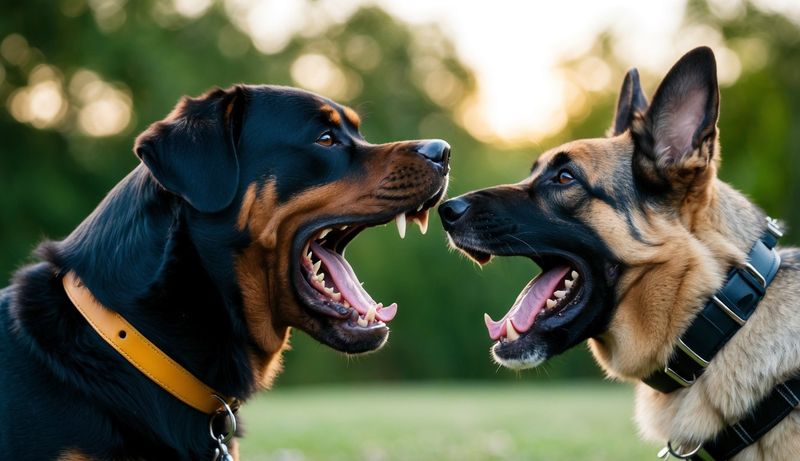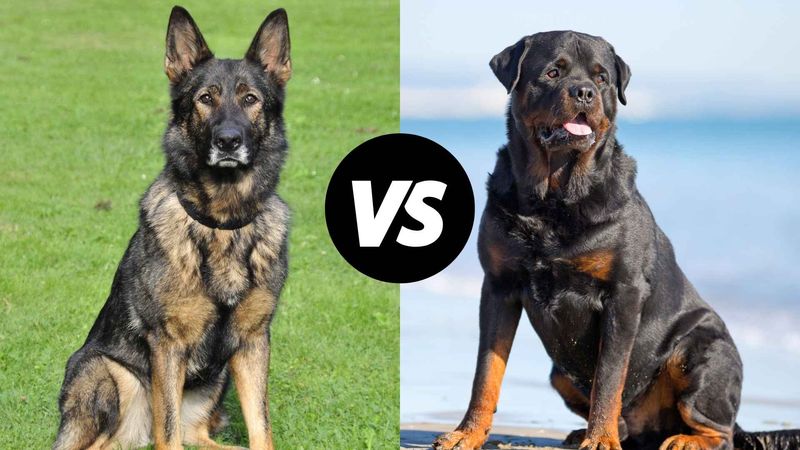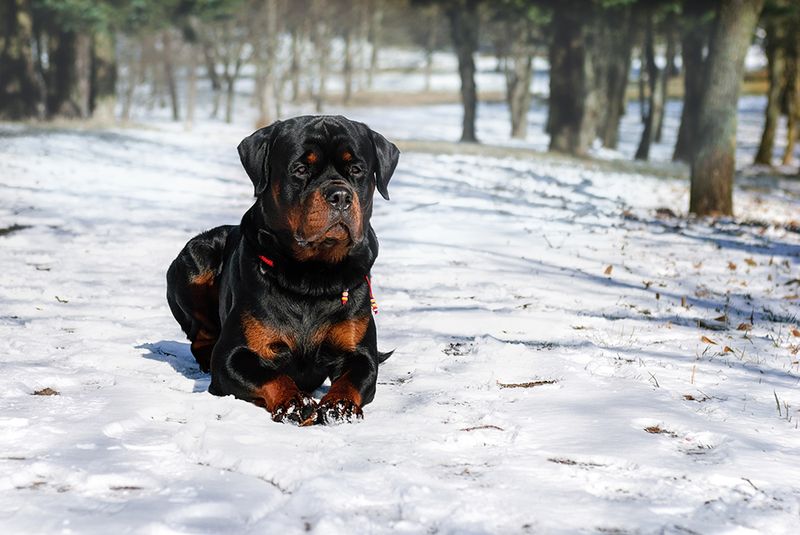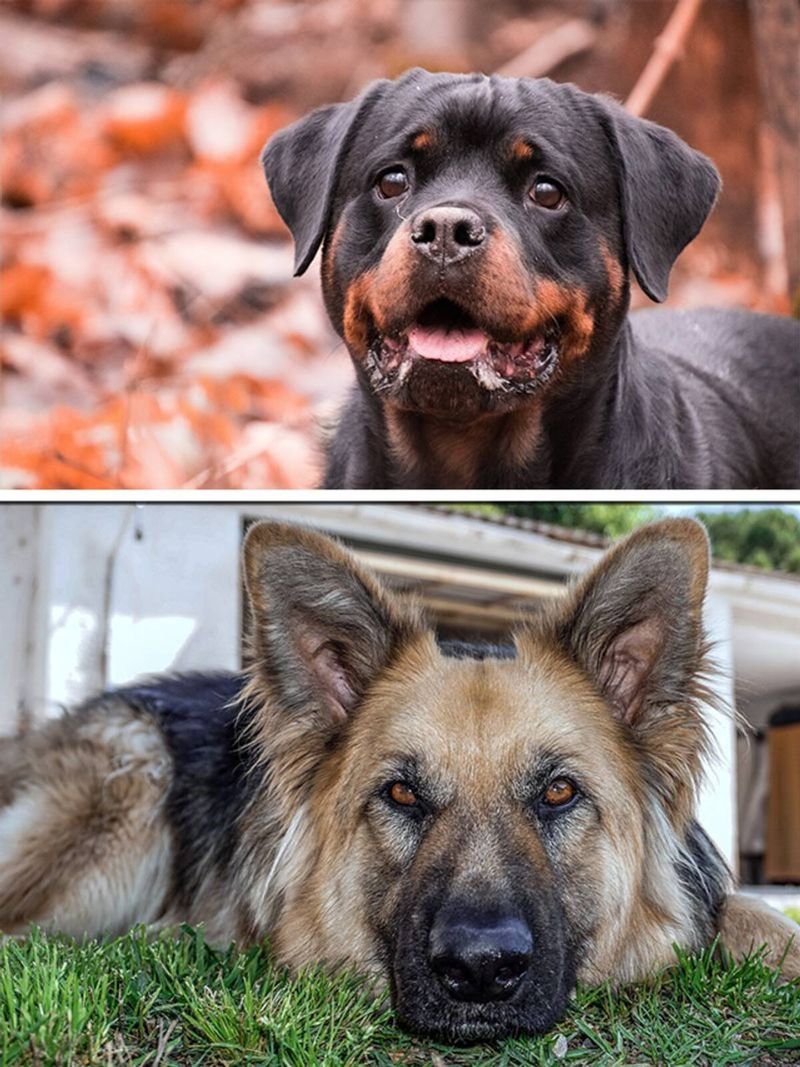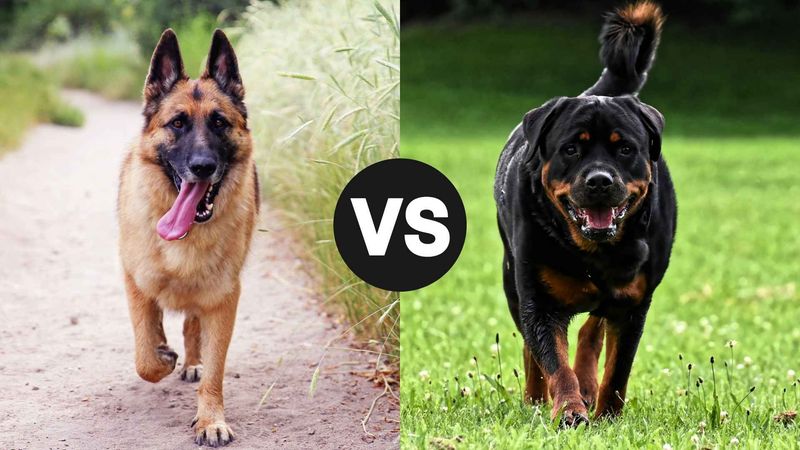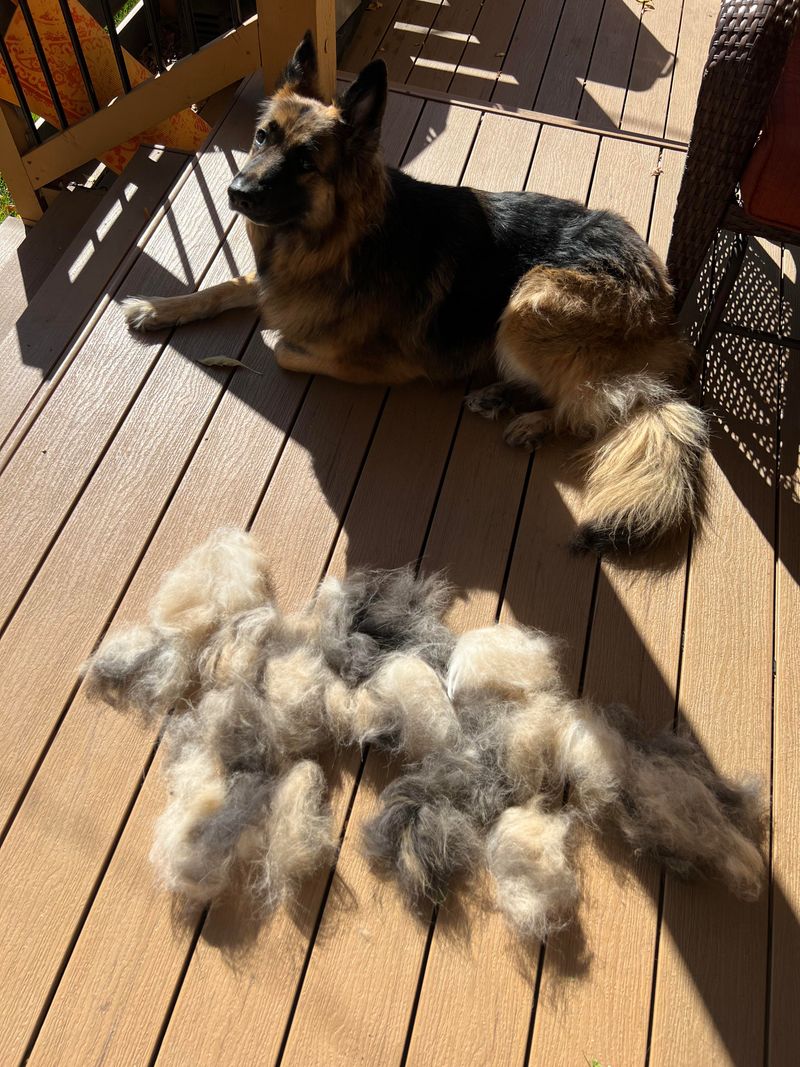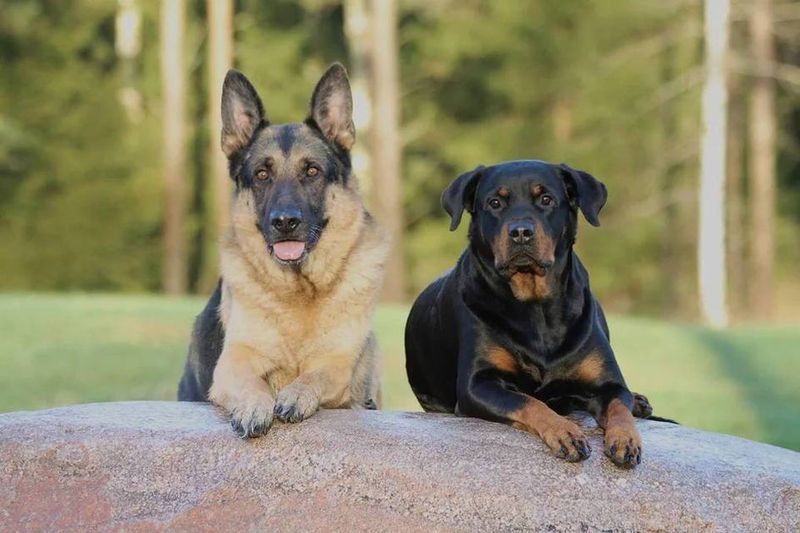Rottweilers and German Shepherds are often hailed as prime choices for guard dogs. However, their reputation may not always align with reality. While both breeds possess impressive strength and intelligence, there are several reasons why they might not be the best fit for everyone seeking a guardian companion.
High Maintenance Needs
Both Rottweilers and German Shepherds require extensive grooming, training, and exercise to maintain their health and demeanor. The grooming needs alone can be overwhelming. Regular brushing and maintenance are essential to prevent shedding and matting.
These breeds also need daily physical and mental stimulation. Owners must commit to lengthy walks and engaging activities to keep them happy and well-behaved. Without proper attention, they can become restless or destructive, which is not ideal for everyone.
Aggressive Reputation
Rottweilers and German Shepherds often carry a stigma of being overly aggressive. This reputation can cause fear and misunderstanding among neighbors and friends.
Such misunderstandings can lead to challenges in social settings. Owners may face restrictions in housing or public spaces, complicating everyday life. Despite their trainability, overcoming this stereotype requires additional effort and patience.
It’s important to recognize that not all individuals of these breeds are aggressive, but the perception can still be a hurdle.
Health Issues
Rottweilers and German Shepherds are prone to several genetic health issues, including hip dysplasia and heart problems. These conditions can lead to a lifetime of medical care and expenses.
Owners must be prepared for regular vet visits and potential surgeries. The financial implications can be significant, making these breeds a costly choice. For those unprepared for such commitments, this can be a major deterrent.
Their health concerns are something to consider before choosing either breed as a guard dog.
High Energy Levels
These breeds are known for their high energy levels requiring ample space to run and play. A small apartment might not suffice for their needs.
Owners should have access to a backyard or nearby park for them to release their energy. Without sufficient exercise, they can become hyperactive or anxious, leading to behavioral issues.
Prospective owners should evaluate whether their living situation can accommodate such high-energy dogs.
Training Challenges
Despite their intelligence, Rottweilers and German Shepherds can present training challenges. They require consistent and firm guidance to avoid dominance issues.
Without proper training, they might test boundaries or develop unwanted behaviors. Professional training might be necessary, adding to the cost and time commitment.
For novice owners, the training demands can prove overwhelming, making other breeds more suitable.
Size Considerations
The size of Rottweilers and German Shepherds can be a hurdle for some owners. Their large build demands spacious living conditions.
A small apartment may not provide enough space for them to move comfortably, leading to potential damage or stress.
Their size also impacts travel and transport, requiring larger vehicles or accommodations. Owners must ensure their living environment can suitably house such large breeds.
Not Ideal for All Climates
These breeds may not thrive in all climates due to their dense coat and size. Extreme temperatures can affect their health and comfort.
In hot climates, they risk overheating, while in cold environments, they may require additional protective measures. Owners in such regions must be prepared to provide necessary accommodations.
Climate considerations are crucial when selecting a breed appropriate for your living area.
Intimidating Appearance
Their imposing appearance, though advantageous for guarding, can unintentionally intimidate friends or family. Visitors might feel uneasy around these breeds.
This perception could lead to misunderstandings or hesitance in social situations. While their loyal and protective nature is commendable, not everyone appreciates such formidable guardians.
Those seeking a more approachable guard dog might consider other breeds.
Insurance and Legal Restrictions
Owning these breeds may result in higher insurance premiums or legal restrictions. Many places have regulations concerning Rottweilers and German Shepherds due to perceived risk.
Owners might face limitations on housing or additional legal responsibilities. Researching local laws before committing to these breeds is essential.
Insurance companies may also charge more, considering these breeds as higher risk. Such factors can influence the decision to own them.
Shorter Lifespan
Compared to smaller breeds, Rottweilers and German Shepherds generally have a shorter lifespan. This can lead to a quicker emotional turnover for owners.
Their lifespan can be impacted further by health issues, making regular veterinary care essential. Families must be prepared for the emotional and financial aspects involved.
Potential owners should consider longevity when choosing a pet, particularly for long-term companionship.
Shedding Problems
Both breeds are notorious for their heavy shedding. This can lead to additional cleaning duties around the house.
Regular grooming helps, but owners should be ready for constant hair on clothes and furniture. Such maintenance might be too demanding for some.
Prospective owners should consider if they are ready for the upkeep associated with these breeds.
Socialization Needs
These dogs require adequate socialization to ensure they behave well in diverse environments. Without it, they might develop anxiety or aggression.
Socialization involves exposing them to different people, pets, and settings regularly. This can be time-consuming but is necessary for balanced behavior.
Owners must commit to ongoing socialization efforts, as neglect can lead to unwanted tendencies.
